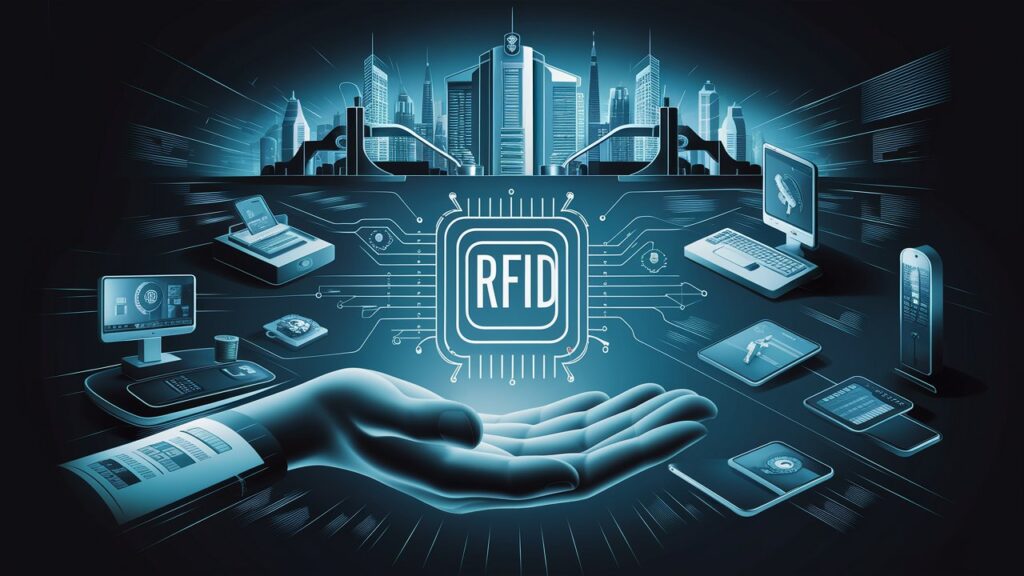In the ever-evolving landscape of healthcare, technology continues to play a pivotal role in enhancing operational efficiency and patient care. Among the myriad of innovations, Radio Frequency Identification (RFID) technology stands out as a transformative tool for hospitals worldwide. By offering real-time tracking and data collection, RFID systems are revolutionizing hospital operations, ensuring both streamlined processes and improved patient experiences.
RFID Technology Revolutionizes Hospital Efficiency

RFID technology has emerged as a game-changer in the dynamic environment of hospital operations, significantly enhancing efficiency and accuracy. Hospitals are adopting RFID systems for a variety of applications, ranging from inventory management to patient tracking. The implementation of RFID tags on medical assets allows staff to quickly locate equipment, reducing the time spent searching for necessary tools. This not only optimizes resource allocation but also ensures that critical devices are available when needed, thus minimizing delays in patient care.
Moreover, RFID technology contributes to improved inventory management by providing real-time insights into stock levels. Hospitals can monitor the usage rates of medical supplies and pharmaceuticals, allowing for timely reordering and preventing stockouts or overstocking. This meticulous inventory control leads to cost savings and reduces waste, as well as ensures that essential items are always in supply. In an industry where time and accuracy are paramount, RFID’s ability to deliver instantaneous data is invaluable.
In addition to asset management, RFID systems enhance hospital security and personnel efficiency. By implementing RFID access cards, hospitals can control and monitor the movement of staff and visitors within their facilities. This ensures that sensitive areas are secure and that only authorized personnel have access, thereby safeguarding patient privacy and hospital assets. Furthermore, RFID technology can automate administrative tasks, such as patient check-ins and billing, allowing healthcare professionals to focus more on their primary duty—providing excellent patient care.
Improving Patient Care with Advanced Tracking Systems

RFID technology is not only transforming hospital operations but also significantly enhancing patient care. One of the primary benefits of RFID is its ability to accurately track patients throughout their hospital journey. RFID wristbands, which contain critical patient information, can be scanned to ensure that patients are receiving the correct medications and treatments. This reduces the risk of human error and improves the overall safety of patient care processes.
Furthermore, RFID systems enable real-time location tracking of patients, which is particularly beneficial in emergency scenarios and for patients who require constant monitoring. By knowing the exact location of each patient, healthcare providers can respond more swiftly and effectively to critical situations. This capability ensures that patients receive timely interventions, which can be lifesaving in urgent cases.
RFID technology also enhances communication and coordination among healthcare teams. With RFID-enabled devices, medical staff can quickly access patient records and updates, ensuring that all team members are on the same page regarding a patient’s status and treatment plan. This seamless flow of information promotes a collaborative environment, where patient care is optimized through effective teamwork. As hospitals continue to embrace RFID technology, the potential for improving patient outcomes through these advanced tracking systems remains significant.
As RFID technology continues to evolve and integrate into hospital systems, its impact on both operational efficiency and patient care becomes increasingly evident. The capabilities offered by RFID systems are not merely technological enhancements but are catalysts for a more responsive, accurate, and patient-centric healthcare environment. As hospitals strive toward greater efficiency and improved patient outcomes, the implementation of RFID technology stands as a testament to the transformative power of innovation in healthcare.



